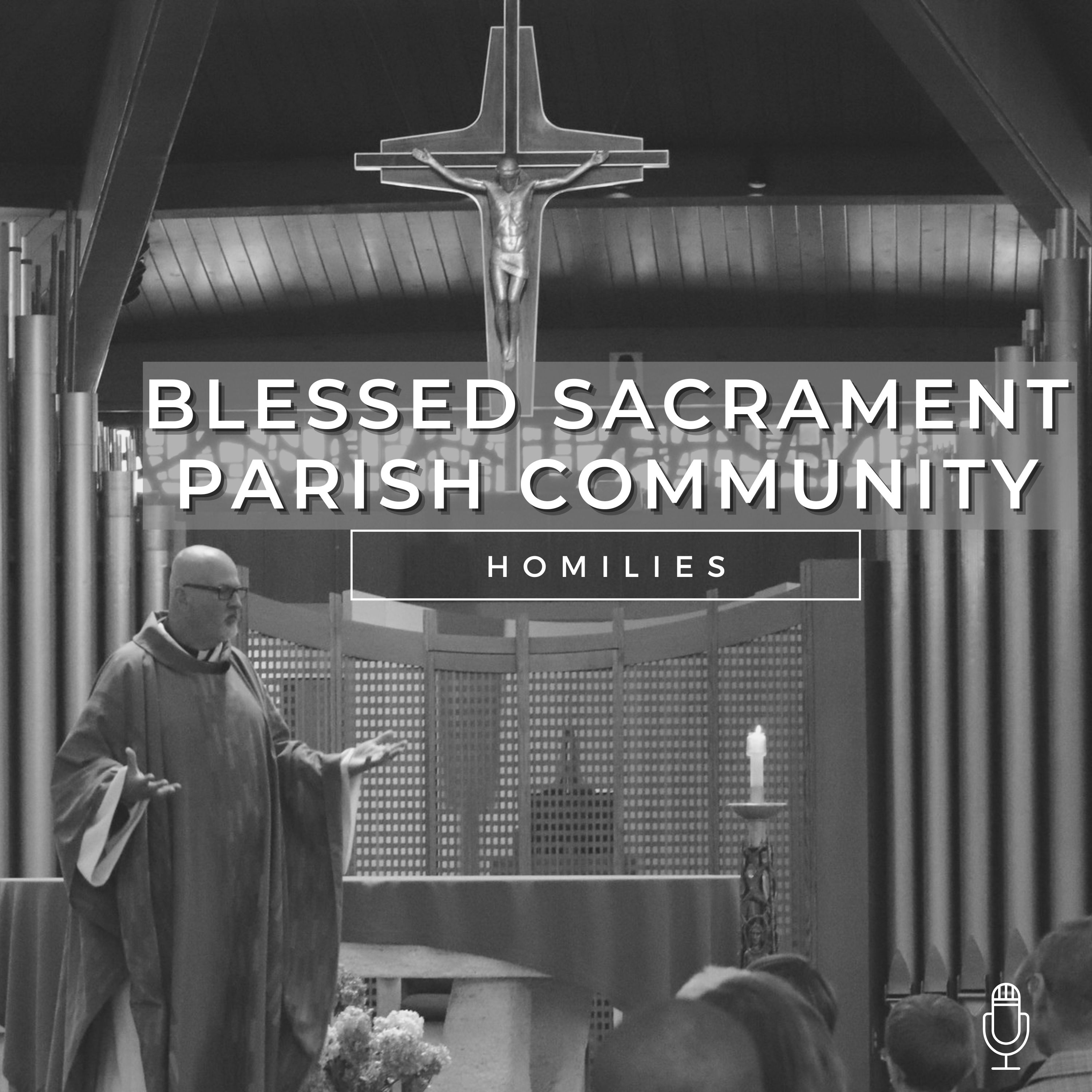Episode Transcript
[00:00:12] Speaker A: Welcome to the Blessed Sacrament Homilies podcast where our mission is to help everyone recognize and experience the presence of God. We hope you are nourished and encouraged by the word. Thank you for joining us.
[00:00:26] Speaker B: The Lord be with you.
A reading from the holy gospel according to Mark Glory, glory to you. On that day, as evening drew on, jesus said to his disciples, let us cross to the other side.
Leaving the crowd. They took jesus with them in the boat, just as he was, and other boats were with him.
A violent squall came up and waves were breaking over the boat so that it was already filling up.
Jesus was in the stern, asleep on a cushion.
They woke him and said to him, teacher, do you not care that we are perishing?
He woke up, rebuked the wind and said to the sea, quiet. Be still.
The wind ceased and there was great calm.
Then he asked them, why are you terrified?
Do you not yet have faith?
They were filled with great awe and said to one another, who then is this? Whom even the wind and the sea obey? The Gospel of the Lord I know there are some of you that are going to doubt what I'm about to say is true, but I was a pretty well behaved kid in school, and during my days in school I always observed how teachers handled their classrooms, and particularly when students became loud and rambunctious.
And at least from my observation about the worst period of time is about 7th grade. No offense to any 7th graders who might be here, but those were always the loudest classrooms where as you get a little bit older, you get a little bit more disrespectful. And I saw everything from teachers who threw erasers and pointers at students, to those that screamed at them, to those who simply went and got the principal in the room to take care of the problem.
But there was one that stood out as the all time best.
And she was an english teacher, and what she would do when the room got loud and nobody was paying attention is she would speak very softly, but say something that you absolutely needed to hear.
And it didn't take long for when she started to speak in that quiet, soft voice for everybody to shut up because she was probably giving an assignment or an answer to a test question or a reminder to put your books on the floor. We're about to have a quiz.
It worked well. Here we have Jesus with his disciples in the boat in a storm on the sea of Galilee, and they're getting scared and they're frantic, and they go and they wake them up and say, don't you care what's happening to us?
And his response is quiet, be still.
And that response was, of course, to the elements, but it was also to those disciples in the boat.
And it was also to us that in those moments of greatest stress, in those moments where we can be frantic, we have to remind ourselves to be quiet, to be still, to calm down.
There was a 13th century mystic who, in describing the language of God, said, God's language is silence.
And any time words are applied, it's simply a bad translation.
And I think that's pretty accurate, that we can find God's presence in our lives, in the stillness, in the quiet. And that doesn't mean that those things going around us aren't chaotic. It doesn't mean that it's not loud in a physical sense, but the quiet is in ourselves.
It's that bringing down our heart rate and simply listening. And it's in those moments that God can be made very relevant to us, very present to us, very alive.
So I got a challenge for everybody, and this challenge is mainly for me, but I'm going to share it with you.
The next time you find yourself in a situation where you're getting frustrated, where you're getting angry, where you're getting tense, imagine driving on us ten right about now, shut the radio off in your car, put away all the distractions and simply try to become quiet.
Because I'm pretty sure if we start to do that, those tensions, those stresses, those struggles are going to simply be melted away, because it's in that stillness, that quiet that God's made present.


